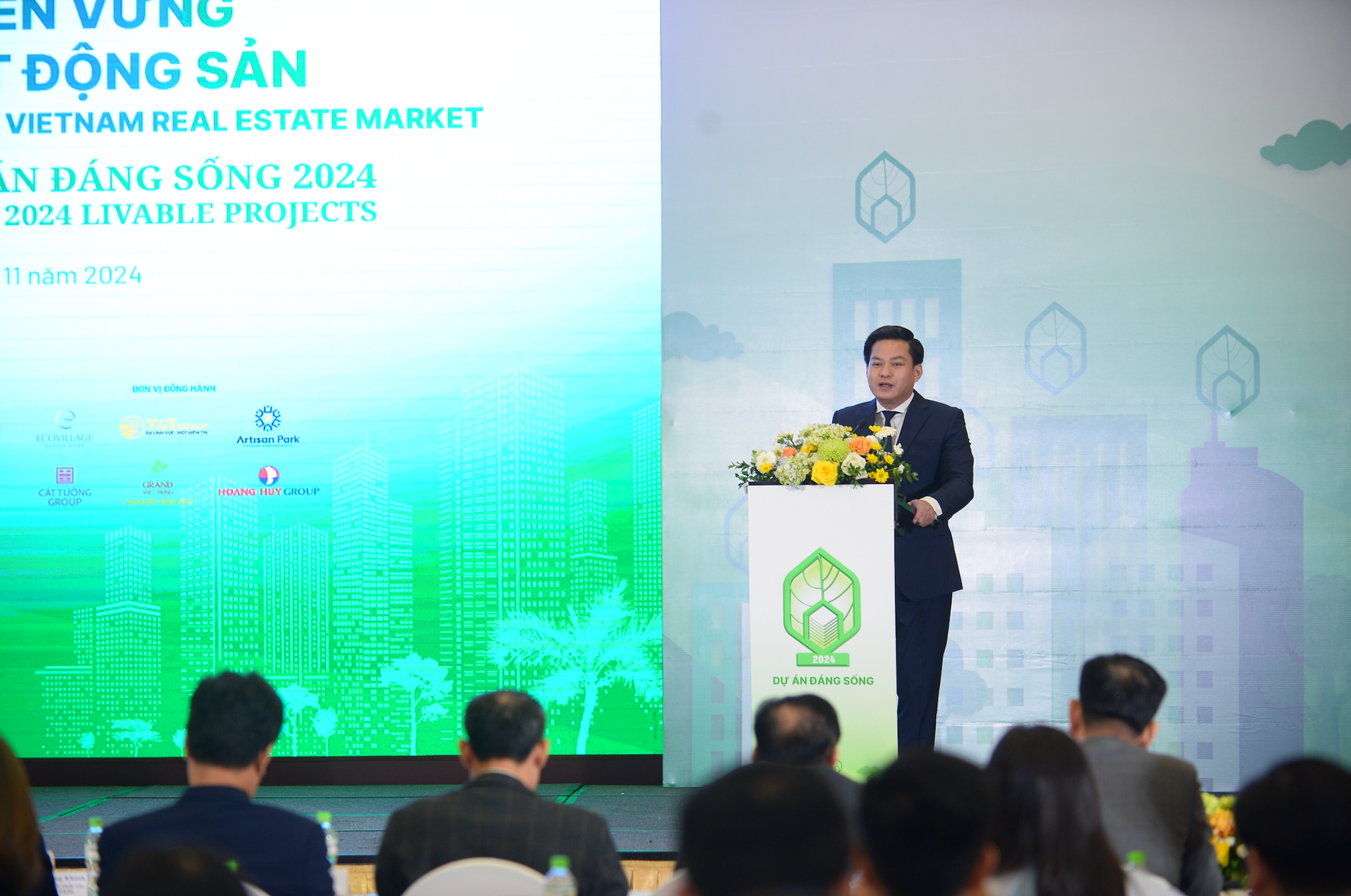Solutions for a stable real estate market
'Heat generation' issues continue to affect home prices in the real estate market, despite encouraging signs of recovery.

"Despite many challenges in 2024, the real estate market showed a positive recovery towards the end of the year," said Mr. Hoang Hai, Director of the Housing and Real Estate Market Management Department (Ministry of Construction), speaking at the Business Forum Magazine's Forum on Sustainable Development of the Real Estate Market.
The government's support policies, especially the execution of the Housing Law 2023, Real Estate Business Law 2023, and Land Law 2024, which went into force on August 1, 2024, and the stabilization of the economy were credited with this.
Price Fluctuation Phenomenon
Nonetheless, the market still experiences regional price swings in particular sectors and locales. Some areas and property types have seen price increases, which has led to an overall rise in real estate costs.
According to Mr. Hoang Hai, there are three primary causes of the recent spike in house prices:
Land-related Costs: With the use of new valuation techniques and land pricing tables, in particular, changes in land-related costs have contributed to an increase in real estate prices. Winning bids at land-use rights auctions have been several times more than the starting prices in some localities, which has caused input costs to rise. Investors have been able to band together, rig bids, and withdraw deposits due to poor auction management, inflating prices for financial gain.
Price manipulation and speculation: Unlicensed brokers and speculators' speculative activity and artificial price inflation are serious issues. These people make money by taking advantage of herd mentality and popular ignorance. The majority lack business ethics, legal expertise, and professional credentials, which results in instability, diminished market transparency, and lost customers.
Lack of Supply: In large cities like Hanoi and Ho Chi Minh City, there is still a severe shortage of real estate, especially reasonably priced housing for those with low and middle incomes. From intricate legal processes to restricted access to credit and bond issuance, real estate developers confront many obstacles. Numerous projects have been delayed by these problems, which has made the supply crisis worse.
Although the market is showing encouraging trends, new land pricing tables and planning announcements from local authorities may have a direct impact on real estate prices, according to Dr. Nguyen Van Dinh, vice chairman of the Vietnam Real Estate Association.
High compensation and clearance costs in Hanoi and Ho Chi Minh City may cause land prices in some locations to soar, which would raise investment costs and cause abrupt rises in product pricing.

The real estate market continues to experience localized price fluctuations in some segments and areas. Photo: VA
Solutions for Sustainable Development
“The real estate market is in a transitional phase and is therefore highly sensitive to positive or negative influences from stakeholders. Modest growth in some segments could drive a robust recovery if supported by favorable policies, infrastructure, and financial measures. However, unchecked price increases could lead to significant consequences for the market and society,” Mr. Dinh emphasized.
The government must move quickly to "clear the path" for social housing and cheap commercial housing projects in order to address these problems. All parties involved, including governmental bodies, trade associations, real estate companies, and brokers, must work together and be involved at the same time.
The chairman of the Vietnam Contractors Association, Mr. Nguyen Quoc Hiep, emphasized that land-related expenses are the main cause of the recent sharp increase in apartment prices. He emphasized that as land costs now make up 40% of all housing prices, regulatory agencies must pay attention to this issue in order to support market development by attending to the needs of homebuyers.
Mr. Hiep emphasized the importance of balancing supply and demand, considering both buyers and sellers, for sustainable real estate market development. A thriving real estate market contributes to a stable economy.
Given the current challenges, the Director of the Housing and Real Estate Market Management Department stressed the need to focus on training and implementing the newly enacted laws, such as the Land Law 2024, Housing Law 2023, Real Estate Business Law 2023, and the Law on Credit Institutions 2024. These regulations and detailed implementation guidelines will be disseminated to local authorities, organizations, businesses, and individuals.
In order to prevent market manipulation and speculative activity, the Ministry of Construction is also researching a pilot model of a "State-managed Real Estate and Land Use Rights Trading Center" in coordination with the Ministry of Natural Resources and Environment and other pertinent organizations.
In 2025, the Ministry of Construction plans to intensify management and conduct inspections and reviews of real estate transactions and business activities. This effort will focus on enterprises, developers, trading platforms, and brokers, especially in areas, projects, or residential complexes with unusual price increases.








